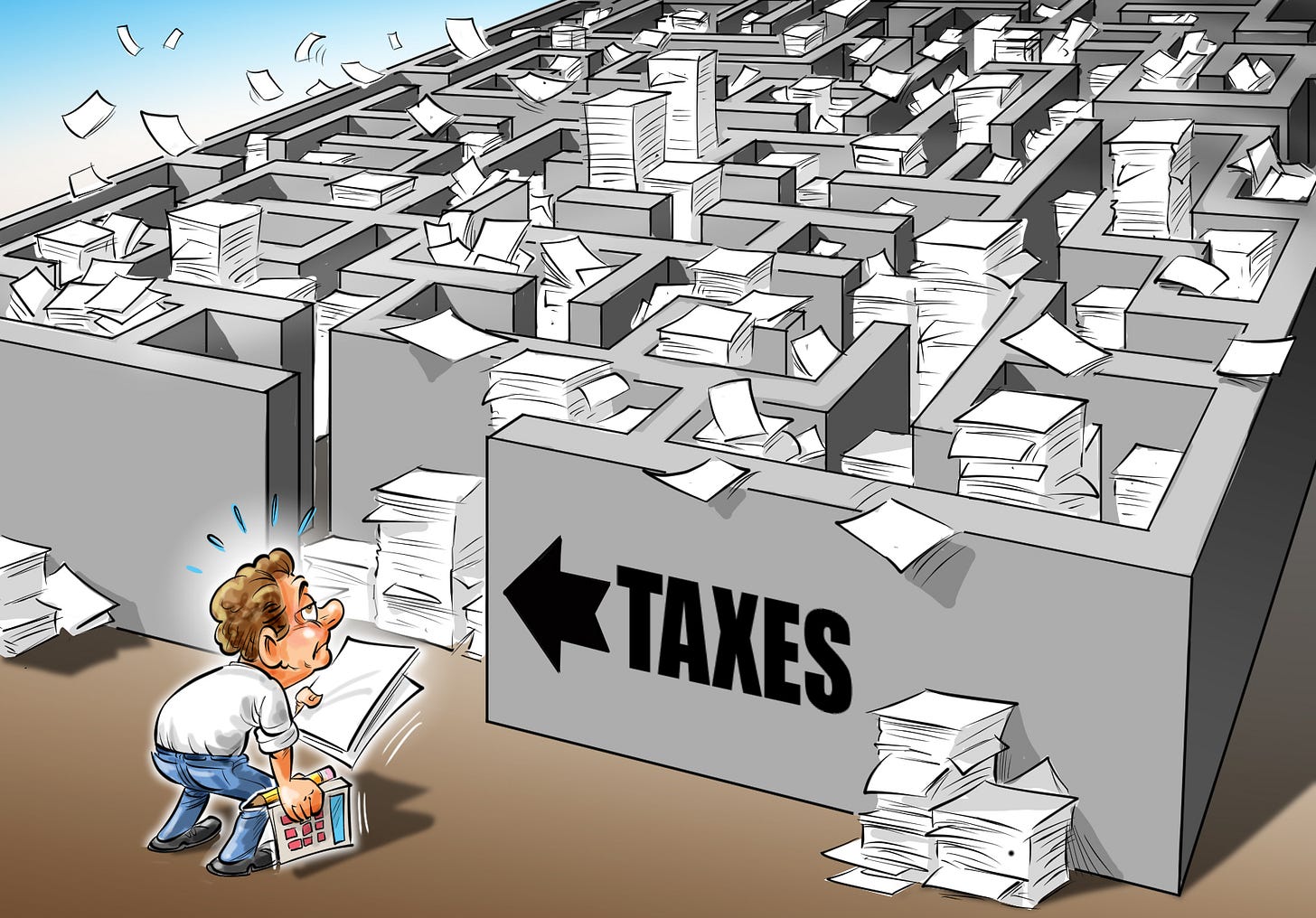UK Pensions: Fix the Cliffs, Fund the Future
Keeps it practical and solution-oriented, with broad appeal.
(Regular readers: The portfolio is chugging along just well and tax policy is inspiring me to write more. Given the number of views and new subscribers added since the last post, it seems to be well received - so here I go again. Worry not, core investment thesis and posts will be back soon enough, just don’t know when)
Let’s begin with what we’re dealing with here.
On one hand, we have a weird and wonderful tax system that seems designed more for whimsy than logic:
Income tax and National Insurance are treated like estranged cousins who share a house but won’t speak to each other - except when it comes to pensioners, whom we somehow spare from NI entirely.
Then we have the infamous cliff edges and tapers: the £100K personal allowance trap (hello, 60% marginal rate!), tax-free childcare cliffs, and childcare allowance tapers. A bureaucratic assault course for anyone trying to plan their finances.
On the other hand, we’re surprisingly generous with pensions:
You can put away up to £60K a year into your pension tax-free now, and pay tax later when you draw it down.
Through auto-enrolment, most salaried folks end up stashing away around 8% of their income - more if they choose to (or more if they choose to - especially to smooth over years of feast and famine).
But then there’s the other side of the other hand - yes, we’re running out of hands:
Even this generous pension allowance is subject to tapering, because apparently nothing good can remain unspoiled. If you earn over £240K, your allowance shrinks faster than the Chancellor's approval ratings during a budget speech.
Now combine all these elements, and strange things begin to happen in the wild:
People earning under £100K contribute their dutiful 8% like metronomes.
Those earning £100K–£160K shove in as much pension money as possible to soothe the pain of being mugged by the personal allowance taper.
And those nearing £200K? They quietly exit the pension contribution chat altogether, terrified of breaching the taper zone and triggering a paperwork nightmare worthy of Kafka.
In short: a holy mess, lovingly handcrafted by successive chancellors and their Treasury elves. No sane design process could have conjured this up. It’s the bureaucratic equivalent of Frankenstein’s monster - with fewer bolts and more unintended consequences.
Let’s hit rewind.
Setting aside the creative masochism of past policy decisions, let’s ask a simple question: can we make this better? Could we design a system that’s simple, fair, and perhaps even - dare we dream - tax-neutral or tax-positive?
Here’s what a sane pension system should aim for:
Encourage long-term saving by letting people put money into pensions today, and taxing them later when they draw it down.
Behave predictably, even if incomes don’t. No “act now or lose your allowance” gimmicks. No sudden cliffs where your accountant needs a stiff drink.
Allow meaningful annual contributions that flex with income - but not so much that it becomes a game for the ultra-wealthy to avoid tax entirely.
That’s really it. Not rocket science.
So what might a better system look like?
Axe the £100K tax traps. Yes, it might cost some revenue in the short term. But it could be offset elsewhere - and frankly, letting more people earn above £100K without being ambushed could itself generate more tax.
Scrap the pension taper. If someone making £300K wants to sock away a chunk of their income for retirement, let them. They're already paying tax on the rest of their earnings. Why punish them for being responsible?
Lower the overall pension contribution limit to £30K–£40K per year. Still a hefty figure. Over 30 years, that’s over £1M in contributions. Take away the tapers and complexity, and suddenly the system becomes understandable to someone without a tax advisor on speed dial.
The upside?
Revenue-neutral in the long run, but much more conducive to long-term capital growth.
Simpler, more predictable incentives for a population with increasingly unpredictable income streams.
More pension capital invested for the long haul - supporting retirements, yes, but also feeding into bonds, equities, and even private markets.
And just maybe, the faint whiff of sanity in the UK’s tax code. Imagine that.
Look, I don’t pretend to understand the full machinery of politics - maybe someone, somewhere is ideologically opposed to this kind of simplification. But if we can’t even pass a tax-neutral, growth-positive, commonsense reform that helps people save for their future, then what exactly can we fix? The good news is: this isn’t utopian thinking. We’re not asking for unicorns or abolishing taxes - we’re just asking for coherence. A system that respects people’s desire to plan for the long term. That doesn't punish them for earning more or saving more. And that treats financial planning less like a booby-trapped obstacle course and more like... well, a system built by grown-ups.
It’s not too late to make this better. We just need the will to do it.
And with that note, happy investing!!
Added reading for those who are interested in the topic:




